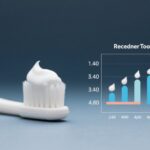In the world of probiotics, certain strains have stood out for their potential health benefits. Among these, Akkermansia muciniphila—a species of bacteria naturally found in the human gut—has emerged as a frontrunner. Often praised for its purported anti-inflammatory and anti-aging effects, Akkermansia is capturing the attention of researchers and health enthusiasts alike. But how much of its reputation is backed by science, and how much is still speculative?
What is Akkermansia?
Akkermansia muciniphila is a type of bacterium residing in the mucus layer of the intestine. Unlike many gut bacteria, Akkermansia does not feed directly on food but rather on the mucus lining itself. This unique interaction is believed to enhance the intestinal barrier, potentially reducing inflammation and improving metabolic health.
Potential Health Benefits
Research in animal models and early-stage human studies has suggested several promising benefits of Akkermansia:
1. **Anti-inflammatory Properties:** Akkermansia is thought to reduce inflammation by promoting a healthy gut barrier, which prevents unwanted substances from entering the bloodstream.
2. **Metabolic Health:** Some studies have linked Akkermansia to improved insulin sensitivity and reduced fat storage, suggesting potential benefits for individuals with obesity or type 2 diabetes.
3. **Anti-aging Effects:** While mostly theoretical at this point, some researchers speculate that by maintaining gut health and reducing inflammation, Akkermansia could contribute to longevity and reduced signs of aging.
The Science Behind the Claims
While the proposed benefits of Akkermansia are exciting, it’s crucial to note that most of the current evidence comes from animal studies or small-scale human trials. Larger, more comprehensive clinical trials are necessary to validate these effects and understand the appropriate dosages and long-term implications.
Caution and Considerations
As with any supplement, caution is advised. Akkermansia is not yet approved as a treatment for any condition by major health authorities, and its long-term safety is not fully established. Individuals interested in trying Akkermansia supplements should consult healthcare professionals, especially if they have existing health conditions or are taking other medications.
Conclusion
Akkermansia muciniphila represents an exciting frontier in probiotic research. Its potential to positively impact gut health, inflammation, and metabolism holds promise, but more research is needed to confirm these benefits in humans. As scientists continue to unravel the mysteries of the gut microbiome, Akkermansia may indeed prove to be a valuable ally in promoting health and wellness.
References
Chen Y, Li X, Yang M, Jia C, He Z, Zhou S, Ruan P, Wang Y, Tang C, Pan W, Long H, Zhao M, Lu L, Peng W, Akbar A, Wu IX, Li S, Wu H, Lu Q. Time-restricted eating reveals a “younger” immune system and reshapes the intestinal microbiome in human. Redox Biol. 2024 Dec;78:103422. doi: 10.1016/j.redox.2024.103422
Cerna C, Vidal-Herrera N, Silva-Olivares F, Álvarez D, González-Arancibia C, Hidalgo M, Aguirre P, González-Urra J, Astudillo-Guerrero C, Jara M, Porras O, Cruz G, Hodar C, Llanos P, Urrutia P, Ibacache-Quiroga C, Nevzorova Y, Cubero FJ, Fuenzalida M, Thomas-Valdés S, Jorquera G. Fecal Microbiota Transplantation from Young-Trained Donors Improves Cognitive Function in Old Mice Through Modulation of the Gut-Brain Axis. Aging Dis. 2025 Jan 3. doi: 10.14336/AD.2024.1089.
Ma X, Liu J, Jiang L, Gao Z, Shi Z, Zhang N, Wang Z, Li S, Zhang R, Xu S. Dynamic changes in the gut microbiota play a critical role in age-associated cognitive dysfunction via SCFAs and LPS synthesis metabolic pathways during brain aging. Int J Biol Macromol. 2025 Apr;304(Pt 2):140945. doi: 10.1016/j.ijbiomac.2025.140945
Huang YC, Lu HY, Zhang L, Olivier A, Wu TL, Hsu CY, LeGrand C, Zeng H, Curran S, Wang Q, Nannapaneni R, Zhang X, Ticó M, Mariotti M, Wu RTY, Combs GF Jr, Cheng WH. Dietary Selenium Deficiency Accelerates the Onset of Aging-Related Gut Microbial Changes in Aged Telomere-Humanized Mice, With Akkermansia muciniphila Being the Most Prominent and Alleviating Selenium Deficiency-Induced Type 2 Diabetes. Aging Cell. 2025 Jun 20:e70130. doi: 10.1111/acel.70130
Kunevičius A, Vijaya AK, Atzeni A, Mingaila J, Šimoliūnė I, Jamontas R, Keževičiūtė E, Gueimonde M, Meškys R, Baltriukienė D, Arboleya S, Burokas A. Intermittent supplementation with Akkermansia muciniphila and galactooligosaccharides modulates Alzheimer’s disease progression, gut microbiota, and colon short-chain fatty acid profiles in mice. Front Aging Neurosci. 2025 Jun 30;17:1617980. doi: 10.3389/fnagi.2025.1617980



